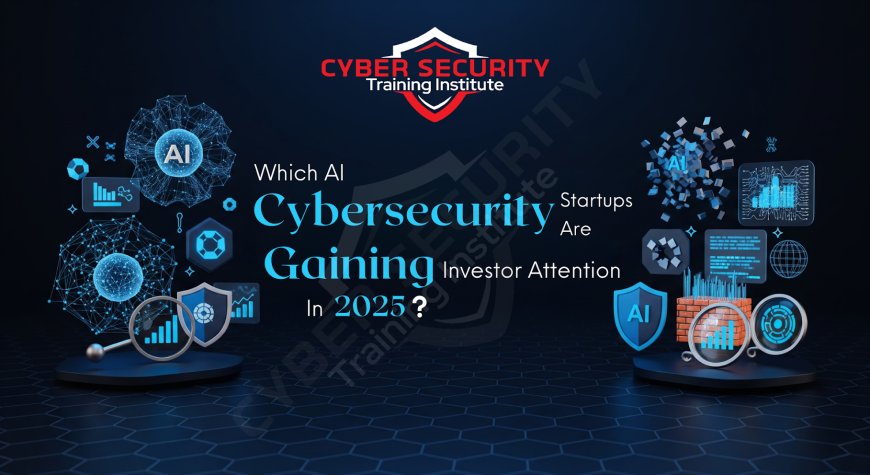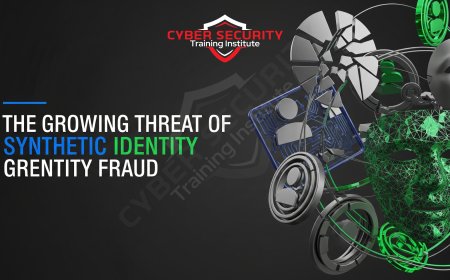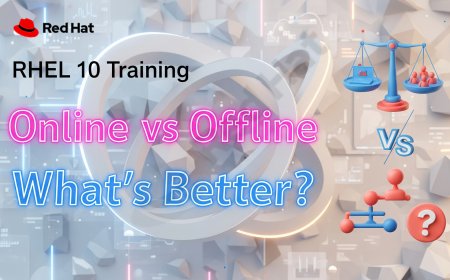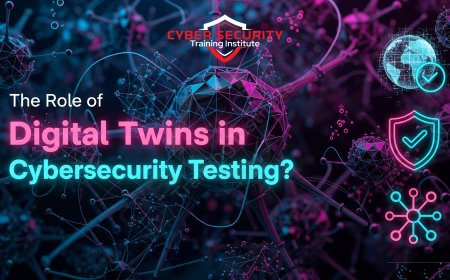Which AI Cybersecurity Startups Are Gaining Investor Attention in 2025?
Explore the top AI cybersecurity startups of 2025 that are attracting serious investor interest. Learn why they stand out and what technologies they’re using. Which AI cybersecurity startups are making waves in 2025? This blog reveals the most promising players, their funding, innovations, and industries they're transforming.

Table of Contents
- Introduction
- Why AI Cybersecurity Is Attracting Investors
- Top AI Cybersecurity Startups of 2025
- What Makes These Startups Stand Out
- Investor Strategies in AI Security
- Industries Seeing Maximum Impact
- Conclusion
- FAQ
Introduction
As we move through 2025, AI-driven cybersecurity startups are becoming hotbeds for innovation—and investment. With cyber threats escalating and becoming more sophisticated, investors are looking for solutions that can automate detection, response, and threat intelligence. This blog explores the startups that are leading the charge and attracting serious funding in the AI cybersecurity space.
Why AI Cybersecurity Is Attracting Investors
Traditional cybersecurity approaches are struggling to keep up with autonomous malware, deepfake threats, and AI-powered phishing. Startups that use AI to predict, detect, and respond to threats in real-time are proving invaluable. Investors are backing these ventures for their innovation, scalability, and revenue potential.
Top AI Cybersecurity Startups of 2025
| Attack Name | Target | Attack Type | Estimated Impact |
|---|---|---|---|
| SentraSec AI | Global Enterprises | Autonomous Threat Hunting | $120M Series C Funding |
| NeuroShield | Financial Sector | AI SOC Augmentation | $75M Raised |
| PhishAI | Healthcare & Retail | AI Phishing Detection | $40M Seed Round |
| QuantumDefend | Critical Infrastructure | Post-Quantum AI Security | $88M Series B |
| ThreatSage | SMBs & Startups | AI Risk Scoring | $20M Angel + Gov Grants |
What Makes These Startups Stand Out
Innovation is the key differentiator. These startups are using cutting-edge technologies like large language models (LLMs), reinforcement learning, and quantum-resistant algorithms. They're also offering scalable, cloud-native platforms that integrate easily with existing enterprise systems.
Investor Strategies in AI Security
VCs and institutional investors are adopting a sector-specific focus, pouring capital into areas like:
- AI for SOC automation
- AI-enhanced EDR/XDR platforms
- AI-powered insider threat detection
Investors are also favoring startups with government backing, strong compliance features, and global scalability potential.
Industries Seeing Maximum Impact
The industries drawing the most value from AI cybersecurity startups include:
- Banking and Finance – for fraud detection and compliance
- Healthcare – to protect against ransomware and PHI theft
- Energy and Utilities – for defending critical infrastructure
- E-commerce – to reduce account takeovers and bot attacks
Conclusion
The second half of 2025 is proving to be a pivotal moment for AI cybersecurity startups. With record-breaking investments and groundbreaking technologies, these companies are not just solving modern cyber challenges—they’re defining the future of security. For investors and CISOs alike, keeping an eye on this space is no longer optional.
FAQ
What is driving investment in AI cybersecurity startups?
The rise of AI-driven threats has created demand for equally advanced defense mechanisms, attracting investor funding to startups with smart, scalable security solutions.
Which startup is leading in autonomous threat hunting?
SentraSec AI is a standout in 2025, offering cutting-edge autonomous threat detection and response tools.
What industries are most impacted by AI security tools?
Banking, healthcare, critical infrastructure, and e-commerce are seeing the greatest impact from AI-enhanced cybersecurity platforms.
Are any of these startups receiving government support?
Yes, several startups like ThreatSage and QuantumDefend are backed by government innovation grants and cyber defense initiatives.
What role does AI play in phishing protection?
Startups like PhishAI are using machine learning to detect patterns and anomalies in email communication, drastically improving phishing detection rates.
Why is post-quantum AI security becoming relevant?
With advancements in quantum computing, protecting against quantum-enabled threats is crucial, making post-quantum encryption a hot area for AI startups.
Is there a trend toward AI in small and mid-sized businesses?
Yes, solutions are increasingly being tailored for SMBs with limited security budgets but high risk exposure, as seen with ThreatSage.
How do AI cybersecurity startups use machine learning?
They use ML models to identify behavioral anomalies, automate incident response, and predict threats before they occur.
What is AI SOC augmentation?
It's the enhancement of Security Operations Centers with AI tools that automate triage, alert prioritization, and root-cause analysis.
How are these startups different from legacy cybersecurity vendors?
They are cloud-native, more agile, and often specialize in narrow but critical areas like phishing, insider threats, or threat prediction.
What is the role of LLMs in cybersecurity?
LLMs can be trained on threat intelligence data to generate contextual insights, automate reports, and identify attack patterns.
What’s the average funding round for AI cybersecurity startups in 2025?
Startups are raising between $20M to $120M depending on their stage, market traction, and technology differentiation.
Are these startups deploying their tools globally?
Most have multi-region deployments and partner with MSSPs to scale internationally.
What are the risks in investing in early-stage AI security companies?
High R&D costs, regulatory uncertainty, and competitive pressure are key risks, though the returns are often substantial for winners.
Do these startups offer integration with legacy systems?
Yes, many focus on APIs and plugins to work alongside existing SIEMs, firewalls, and identity providers.
Which countries are backing AI cybersecurity ventures?
The US, Israel, India, and several EU nations are leading in terms of public-private support for AI cyber innovation.
What kind of talent powers these startups?
AI cybersecurity startups often recruit PhDs in ML, ex-government cyber experts, and Red Team/Blue Team professionals.
Is there consolidation expected in this space?
Yes, large cybersecurity vendors are expected to acquire several AI startups to expand their XDR and automation capabilities.
How are startups handling ethical AI concerns?
Leading startups implement explainable AI (XAI), bias audits, and security-by-design frameworks in product development.
Are investors prioritizing any particular AI model?
Models with faster training times, lower energy usage, and better anomaly detection are drawing the most attention.
What's Your Reaction?
 Like
0
Like
0
 Dislike
0
Dislike
0
 Love
0
Love
0
 Funny
0
Funny
0
 Angry
0
Angry
0
 Sad
0
Sad
0
 Wow
0
Wow
0















